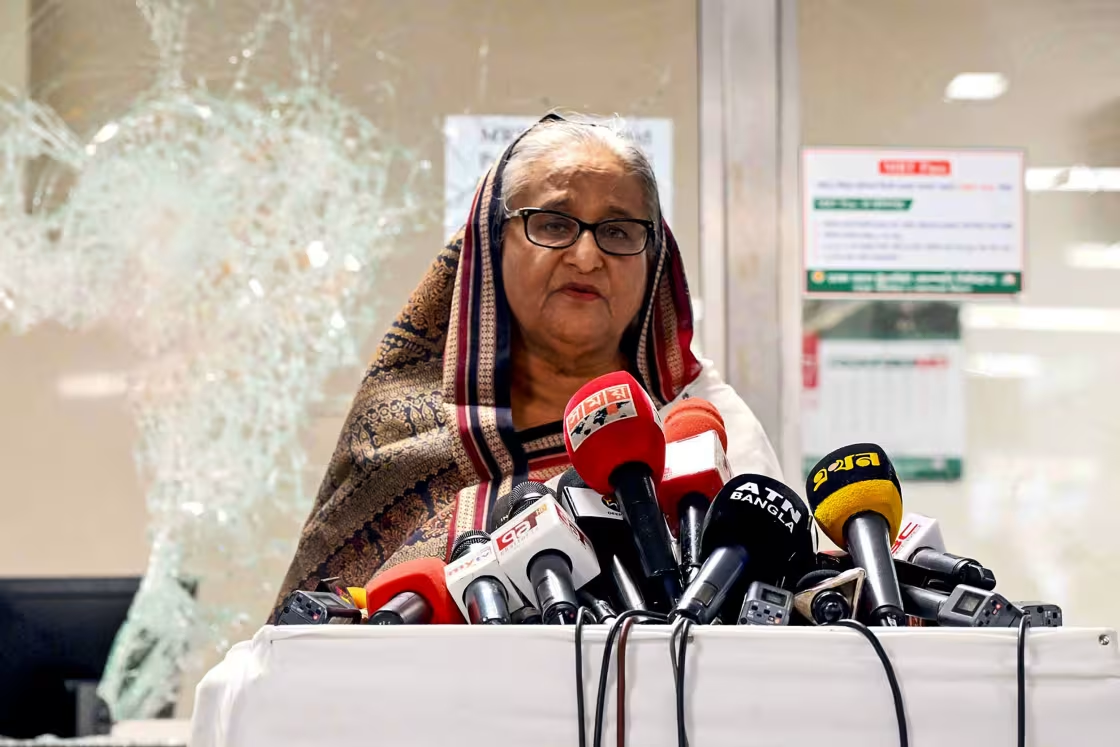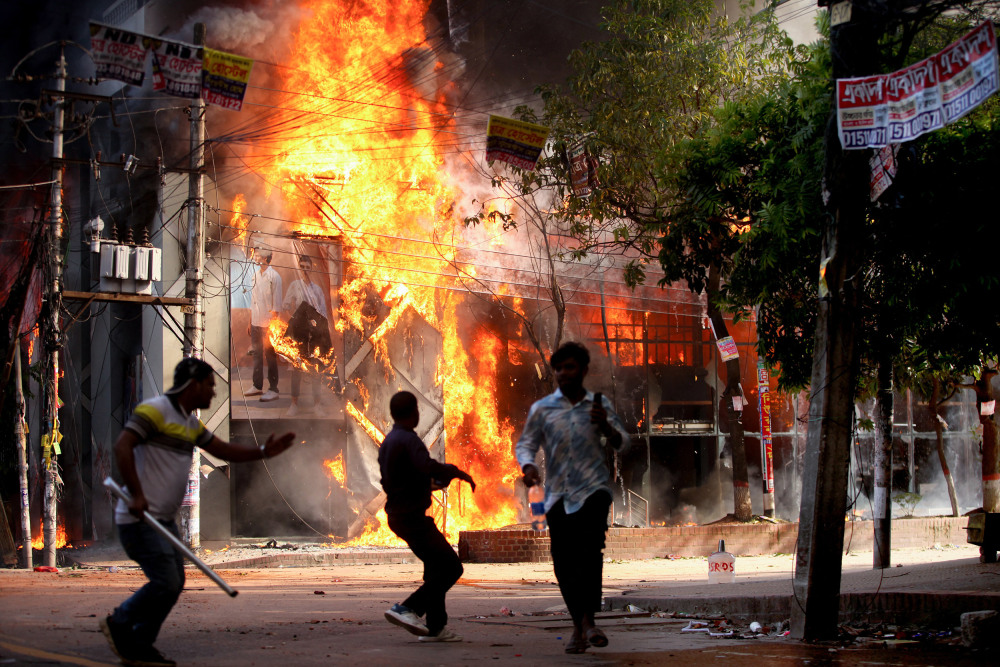 |
| Bangladesh Prime Minister Sheikh Hasina in Dhaka on July 25. |
P rime Minister Sheikh Hasina resigned and left Bangladesh on Monday following a wave of violent protests that resulted in nearly 100 fatalities. The announcement came from Army Chief General Waker-Uz-Zaman, who addressed the nation and confirmed that an interim government would be formed.
The resignation of Hasina, who is 76 and Bangladesh's longest-serving leader, marks a significant shift in the political landscape of the South Asian nation, which has been gripped by unrest. The recent mass movement against her administration's perceived authoritarianism has seen over 300 people killed in the past few weeks.
Protesters were seen removing belongings from the prime minister’s unguarded residence in Dhaka, celebrating her departure. Saqlain Rafi, a high school student, expressed his joy, calling it "perhaps the best day of my life" and praised the martyrs who fought for the future of the country.
Sunday was marked by intense clashes, leaving at least 95 dead, including 14 police officers. The violence led to the imposition of an indefinite nationwide curfew. However, protesters, particularly students, called for a march to the capital, attracting participants from across the country.
The government responded by cutting internet access on Monday ahead of General Zaman's address. Demonstrators clashed with police, who used tear gas and rubber bullets to disperse the crowds, resulting in widespread destruction as cars and buildings were set on fire.
The protests, initially sparked by a controversial quota system for public sector jobs, escalated into a broader movement against Hasina's rule. The violence has drawn international condemnation, with calls for an end to the bloodshed and for justice for those killed.
In response to the turmoil, the military imposed curfews and enforced strict measures to control the situation. Despite these efforts, the unrest persisted, leading to Hasina's eventual resignation.
The political unrest in Bangladesh is not new, with the nation having a history of violent clashes between rival parties. Hasina, who first served as prime minister from 1996 to 2001 and returned to power in 2009, faced her most significant challenge in recent years with these protests. Her government has previously attempted to change the hiring system for government jobs, which has been a contentious issue among young job seekers.
The recent protests echo the sentiments of earlier demonstrations in 2018, when the quota system was first abolished after violent opposition. The country's Supreme Court recently reinstated the quotas but reduced them significantly following the latest round of violence.
As the interim government steps in, Bangladesh faces a critical period of transition. The events of the past weeks have highlighted deep-seated grievances and the desire for significant political change among the population.







0 Comments